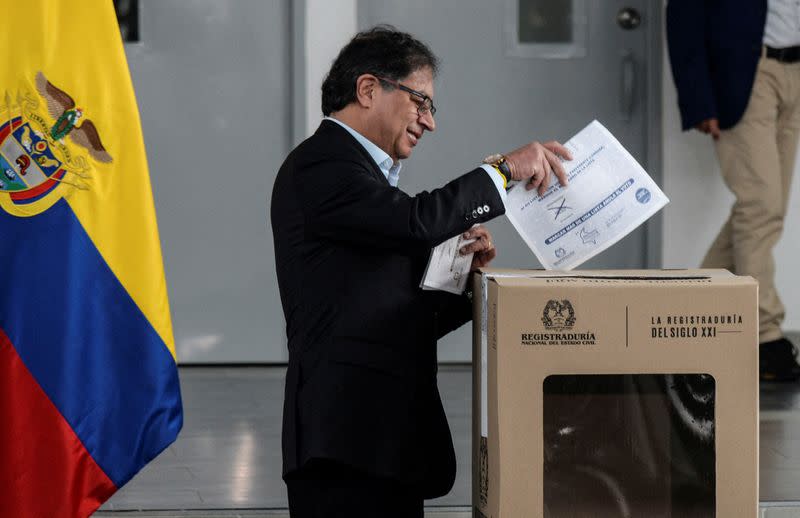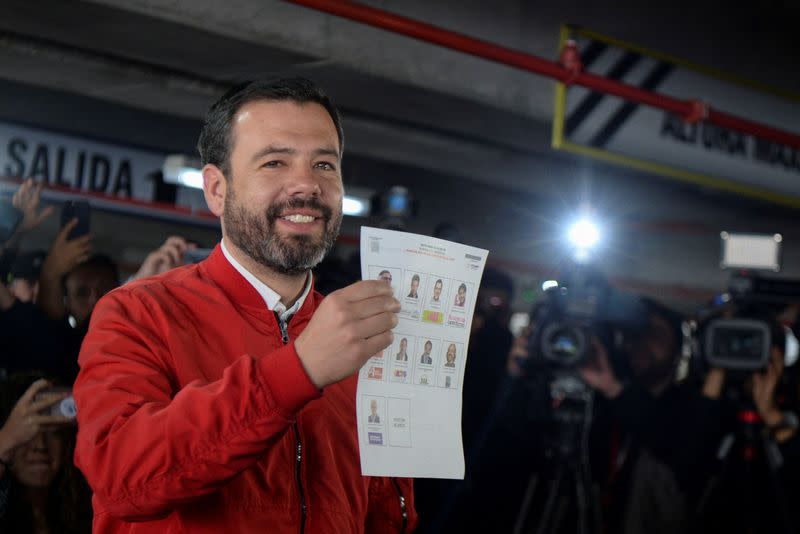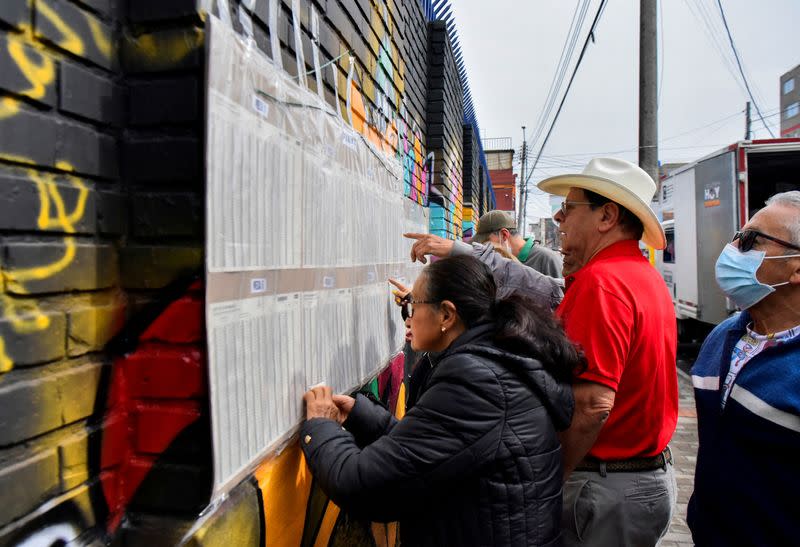Colombian opposition politicians defeat Petro's coalition in local, regional elections
- Oops!Something went wrong.Please try again later.
- Oops!Something went wrong.Please try again later.
By Luis Jaime Acosta
BOGOTA (Reuters) -Colombian opposition candidates largely swept elections for mayors, governors and regional lawmakers on Sunday, dealing a defeat to President Gustavo Petro's leftist coalition in votes that analysts called a referendum on his government.
Petro, a 63-year-old economist who was elected in August 2022 as the first leftist president in Colombia's history, has low poll ratings, and Sunday's outcome is expected to influence the 2026 presidential election.
Petro cannot seek re-election.
In the capital of Bogota, the ruling coalition's candidate, Gustavo Bolivar, came in third place for mayor, one of the top government positions after the presidency.
In accepting the loss, Bolivar called the result a "punishment vote" over disappointment with Petro's government.
Political analyst Sergio Guzman, director of Colombia Risk Analysis, said Bolivar's loss sends "a very strong message," in spite of insistence from Petro's government that the vote is not a reflection on the president.
Carlos Fernando Galan, of the New Liberalism Party, won the Bogota mayoral election with nearly half the vote.
Petro congratulated the winning candidates and said he planned to work together.
"We will work to articulate their campaign proposals so that we can build together a country that fights corruption, injustice, and faces the climate change crisis," he said in a televised address.
"It is our duty as rulers to respect the voice of the people."
Most candidates are backed by coalitions involving several parties or by signatures from citizens which allow them to run as independents.
Voters in Colombia's other two biggest cities, Medellin and Cali, elected as mayor politicians who are strong critics of Petro.
Many of the winning candidates had vowed to improve security and promote projects that will create jobs with private sector support.
Almost 39 million Colombians were eligible to vote, and the ballots included more than 125,000 candidates.
Although campaigning was marked by deteriorating security and threats to candidates, voting largely proceeded without incident.
The National Registrar's Office reported two municipalities where voting was suspended due to incidents of violence.
(Reporting by Luis Jaime Acosta; Writing by Daina Beth Solomon; Editing by Lincoln Feast and Stephen Coates)



